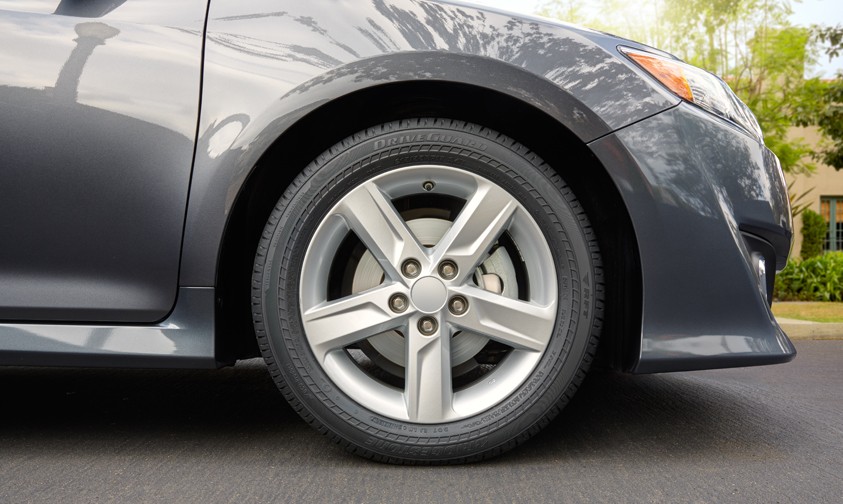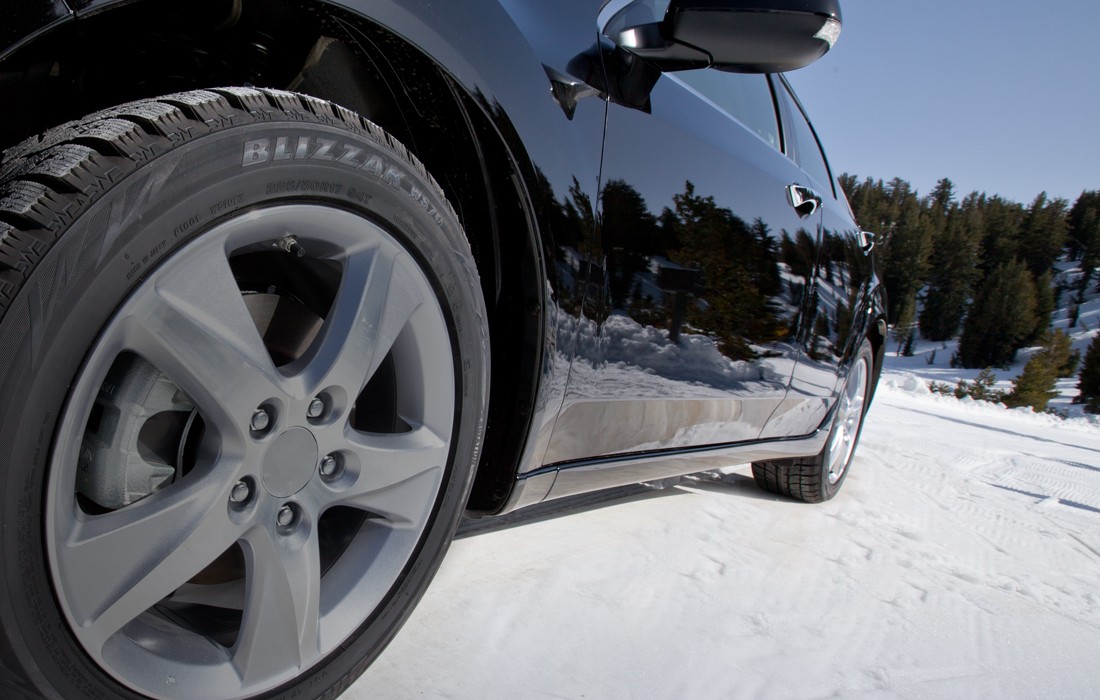Winter & Snow Tires vs. All Season Tires
Many drivers ask themselves, "Do I need winter tires if I have all season tires on my car?" The short answer is, possibly. To understand what tires you'll need, you must first understand the differences in winter tires vs. all season tires. Every driver's needs are different depending on the weather and road conditions they encounter throughout the year.
All Season Tires
Many vehicles are fitted with all season tires when they leave the factory. Since they are built to provide a relatively quiet ride, good tread life and fuel economy, its no wonder why they are so popular. All season tires offer versatile performance and are designed to perform in a variety of conditions including wet roads and light winter driving. All season tires are designed to offer a combination of benefits from summer and winter tires.

Does being both summer- and winter-ready mean all season tires combine the best capabilities of summer and winter tires? Unfortunately, it doesn't. In an effort to provide good performance in many conditions, all season tires tend to compromise some max summer and winter performance capabilities. What does that mean? That means all season tires won't provide the same amount of extreme grip and sharp handling of a summer tire. Likewise, an all season tire is not designed to handle extreme winter conditions like trekking through snow or driving on ice. Think of all season tires like tennis shoes. You can wear tennis shoes all year, but they aren't ideal for all situations. It'd be much better to have flip flops on the beach in the summer and boots for the snow.
All season tires are a great option for drivers who live in moderate climates and do not encounter extreme cold, ice and snow in the winter months.
Winter & Snow Tires
When it comes to driving in winter weather, having the right tire matters. From heavy snowfall to black ice, winter roads are extremely unpredictable. These conditions challenge tires to provide traction like no other season of the year. The combination of cold temperatures, ice, and snow can be best met by winter tires, which are specially designed to perform in winter conditions.

There are specific features of winter tires that make them unique: tread rubber, tread depth and patterns, and biting edges.
The Tread Rubber
In extreme cold temperatures, the tread rubber of an all season or summer tire stiffens and becomes less able to provide sufficient traction. To combat this, tread rubber compounds of winter tires are designed to remain flexible, allowing the tire to grip the road better.
The Tread Depth and Patterns
A unique feature of winter tires is deeper tread depths and unique tread patterns. Deeper tread depths reduce snow buildup and provide better traction on the snow. Winter tire tread patterns are designed to channel snow and slush and expel water.
Biting Edges
Winter tires also feature an increased number of biting edges and high sipe densities, or in other words, thousands of tiny slits in the tread that provide traction on ice.
Bridgestone Blizzak tires also feature a proprietary multi-cell compound that acts as a sponge to help remove the thin layer of water that resides on ice and cause slippage. This helps to improve traction in icy conditions so you can maintain control of your vehicle.
Snow Tires vs. All Season Tires: Which Are Best?
The solution to the winter or snow tires vs. all season tires question will depend on where you live and the conditions in which you drive.
If you only see a few snow flurries each year and slick, icy roads are more of a fluke than an annual ordeal, all season tires are probably the way to go. But if you know there’s a period when icy roads are always an issue, mounting winter tires isn’t an over-the-top precaution – it’s an essential safety measure that could save your life.
When mounting winter tires for the season, always install a full set. Just changing out the front tires increases the likelihood that the rear tires will skid. Likewise, just putting snow tires on the rear wheels could cause the front tires to lose traction and make it impossible to steer your vehicle.
And remember to re-mount those all season tires when spring rolls around. While winter tires are undeniably superior in extreme winter conditions, they’ll wear down faster on warm, dry pavement.
-
Tyre Safety for All Drivers
Tyre Safety for All Drivers
As with just about everything on your car, paying attention and being proactive to your tyres are the keys to a successful trip. Here are a few tips for avoiding trouble on the road ahead.
Click to Learn More -
5 Tips to Get the Most From Your Tyres
5 Tips to Get the Most From Your Tyres
How can you stretch your dollar when it comes to your car’s tyres?
Click to Learn More -
What Are All Season Tires?
What Are All Season Tires?
For drivers who want versatile performance year-round, all season tires are made out of rubber composite compounds that are formulated to perform well under a wide range of weather and temperature conditions.
Learn More